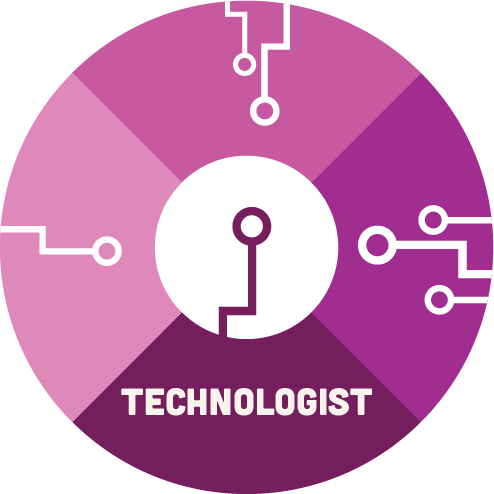

 Life-long Learner While Being Tech Slow
Life-long Learner While Being Tech Slow
by Ather Shabbar
Wicked problems are those without a definitive answer. They can be one of the trickiest problems since everyone’s situation is unique. To help guide you, we collected stories from students in similar situations, their advice, and how they overcame it.
This story is about a mature student returning to university and struggling to adapt to new technology.
Remember: The black triangles on the left of the topics mean that you can select the triangle and read more details!
The Wicked Problem
I am returning to post-secondary education at the age of 60 after taking early retirement from my career. My employer has offered an attractive early retirement package which afforded me to pursue a graduate program. I aim to be a lifelong learner and study subject areas that interest me, i.e., organizational learning and culture change.
I found myself among much younger students who use their electronic devices with a high level of proficiency. Most students in my classes were about the age of my children.
As an older adult, I also found that my biological needs differed from other students. For example, my hearing and sight were not as sharp as I was younger. My studying habits also differed from younger students, i.e., I took notes using a notebook and pen, not using online tools such as Evernote.
At work, I was accustomed to calling the help desk when I encountered technological problems. There was instant help available to resolve the issue, and on rare occasions, tech help came to my office to resolve the situation I was experiencing. This sort of service was not available to me at the university.
My computer skills were limited to email and Microsoft Word. Occasionally, I used PowerPoint to develop presentations. I was unfamiliar with e-tools like Google Docs, Survey Monkey, Eventbrite, and the Adobe Suite apps. These were commonly used apps. Other students “whizzed by” using such technological tools, while I often found them very frustrating parts of reentry into academic life. It took me much longer to complete assignments and prepare for classes. This was a significant source of frustration and much more challenging than completing coursework and assignments. I often asked professors to grant me extensions to hand in my studies or projects.
To add to the frustration, I was using a new computer with an operating system I was not familiar with a MacBook. It was a mistake as my home computer was old and was the size of a Buick. I had been using the Microsoft operating system.
I also found that the University IT department could have been more helpful. They often didn’t help to resolve the problem I experienced. They closed the “ticket” before the issue was addressed. I found the school administrators treated a mature student just like any other seventeen-year-old student, sometimes with a condescending tone.
Finding a Solution
I sought help from another student who understood my frustration and showed me how to use available technology for my studies. I didn’t want to keep asking for help from other students knowing they had their workload to manage. I slowly learned to use Google Search to discover apps and functions. I also began to use Google Scholar, accessible documents, etc. It was slow and often frustrating, and it took me a long time to get used to it.
I decided to live with the circumstances and took a different perspective, which included the following:
- Recognize it will take longer to get through the coursework. Live with the reality I was facing. Know that learning technology will be your friend. The more I used an app, the more confident I became.
- Make better use of time management tools. Allocate time to complete the coursework as well as learn new technologies.
- Ask for help from others who are willing to help. Many people needed to be more suitable for a mentoring arrangement.
- When experiencing terrible service from the school’s IT help, bring the matter up with senior administrators.
- Seek help from the school when possible.
Final Thoughts
There is quite a heavy burden on learners to “figure out” the technology and often little support for doing so. And while this may be exacerbated for mature students who are coming back into a far more specialized student experience than in their past, all learners will face this “hidden curriculum” of tools they need to figure out how to use. Recognizing the environment, culture, and practices you are entering will take agility on your part.
APA Reference
Shabbar, A. (2021, October 7). Life-long learner while being tech stupid. Liberated Learners. https://wicked.liberatedlearner.ca/learner/life-long-learner-while-being-tech-stupid/

